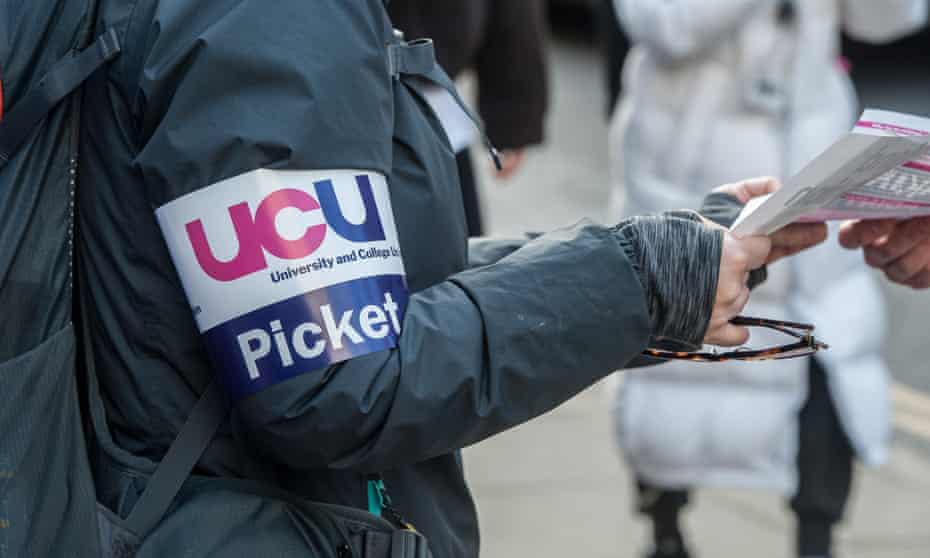
Read the article and answer the questions:
1. What was the reason for the strike?
2. How do you understand the term 'casualisation'?
3. Who insisted on reduction in staff costs and why?
4. Do you think reduction is the solution?
Watch the interview and answer the question: What problem does Angelina raise in her acceptance speech?

ReplyDelete1. Strikes were staged because of the reorganization of universities, which led to lower pensions, lack of job security and a reduction in the number of courses.
2. The transformation of a workforce from one employed chiefly on permanent contracts to one engaged on a short-term or casual basis.
3. The government insisted on reducing wages and pensions.
4. No, I don't think so. I think it's just shifting responsibility from the government to other people.
1. Because the employer, Universities UK, is trying to reduce pensions by more than 30%, using, as reported, an erroneous estimate made during the economic and social crisis caused by the pandemic.
ReplyDelete2. Сasualisation is a process of work or jobs becoming less likely to be regular or permanent
3. The government insisted on reducing wages and pensions.
4. I think it's not a solution and it's wrong to leave people out of work
1 - Along with tens of thousands of university workers at 58 institutions across the UK, there were strike for three days this week over pensions, pay and conditions.
ReplyDelete2 - 'Casualisation' the process of work or jobs becoming less likely to be regular or permanent. Indeed, the situation at Goldsmiths, a small University of London college specialising in arts, humanities and social sciences, could be a window on to the future of higher education nationally: a future of casualisation, swingeing cuts and the possibility of troubling interventions from financial institutions.
3 - The possibility of an alliance of cost-cutting senior management and finance capital has provoked a heartening response from a militant union branch and a politicised student body: 86% of Goldsmiths’ UCU members, on a 70% turnout, voted to strike.
4 - NO. It impacts not just on salary and job security but also on career development and opportunity to apply for promotion. The academics lose several years of salary at the start of their career and the pension amount is too meager. Marketisation of higher education is a disaster, both for staff and students. Education is a public good, which benefits the wider economy and society as well as the individual. Johnson claims to want a high wage, high skill economy, in which the UK is a leader in innovation and development. The only way this can be achieved is by investing in education, and especially university education.
1) Along with tens of thousands of university workers at 58 institutions across the UK, I have been on strike for three days this week over pensions, pay and conditions. For workers at Goldsmiths this national strike has fallen in the middle of an epic, local three-week strike of our own – over management proposals to sack 52 staff, as part of a cost-cutting plan financed by big banks.
ReplyDelete2) Casualisation i understand as the transformation of a workforce from one employed chiefly on permanent contracts to one engaged on a short-term or casual basis.
3)The government decided to reduce wages and pensions
4) I definitely can’t call it “solution” because people will have no work at all . It has bad impact in people’s jobs and dreams . For sure the best solution is to investigate money in education, and economic resources, public goods . The university education should be the main thing to look after
1.Along with tens of thousands of university workers at 58 institutions across the UK, there were strike for three days this week over pensions, pay and conditions.
ReplyDelete2.It is the result of an unlikely or unpredictable event; the manifestation of an integral complement to the laws of necessity.
3. The government insisted on reducing wages and pensions.
4.No,I don't think so